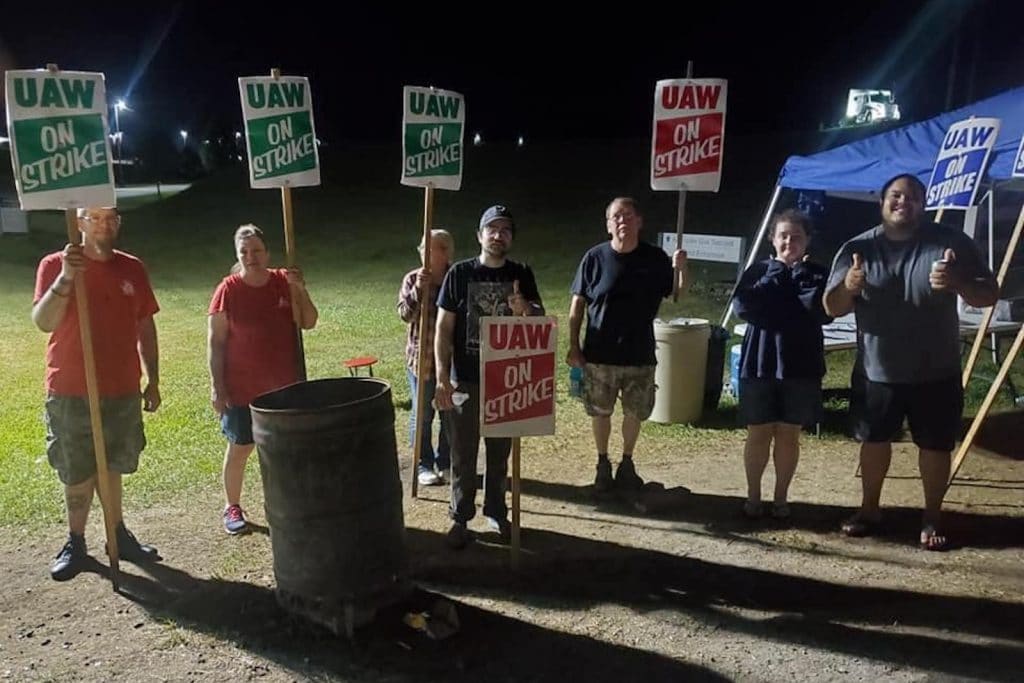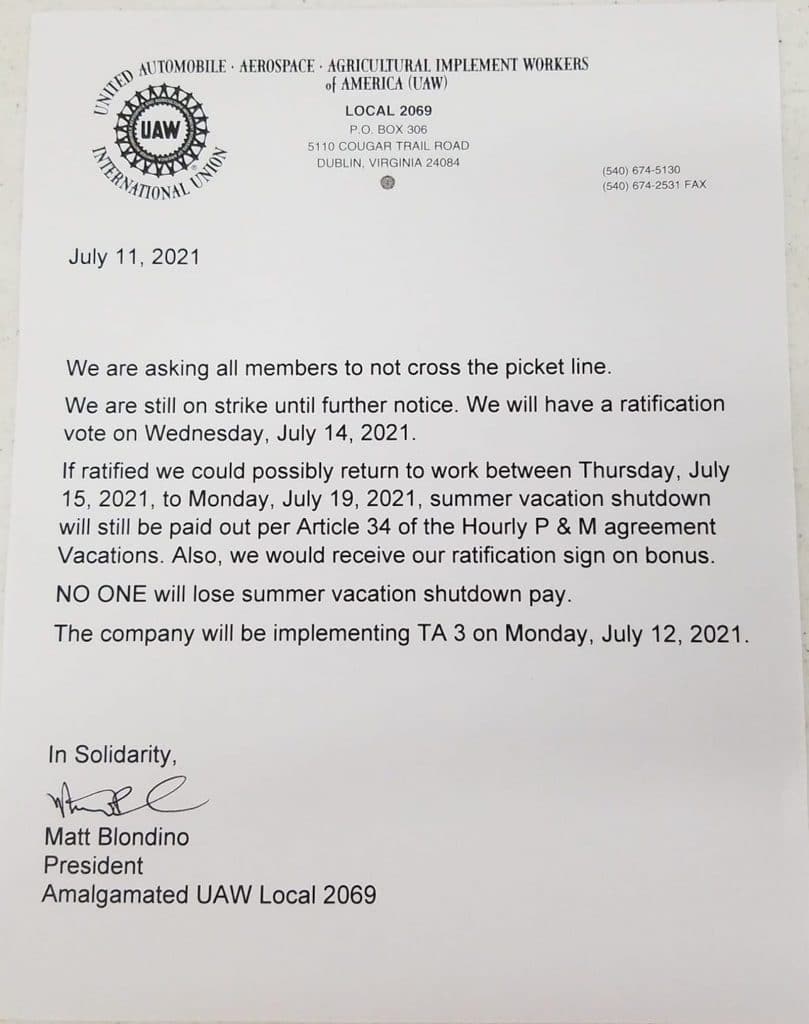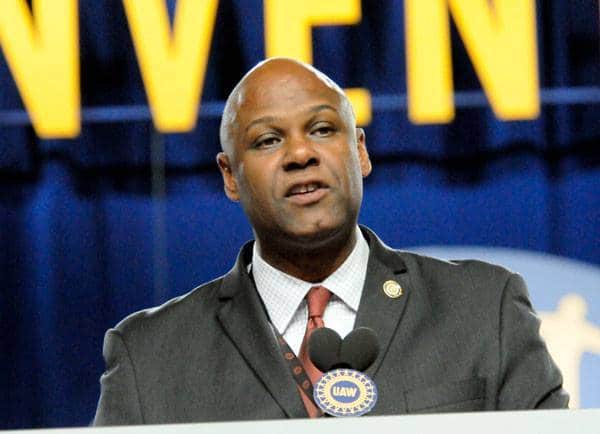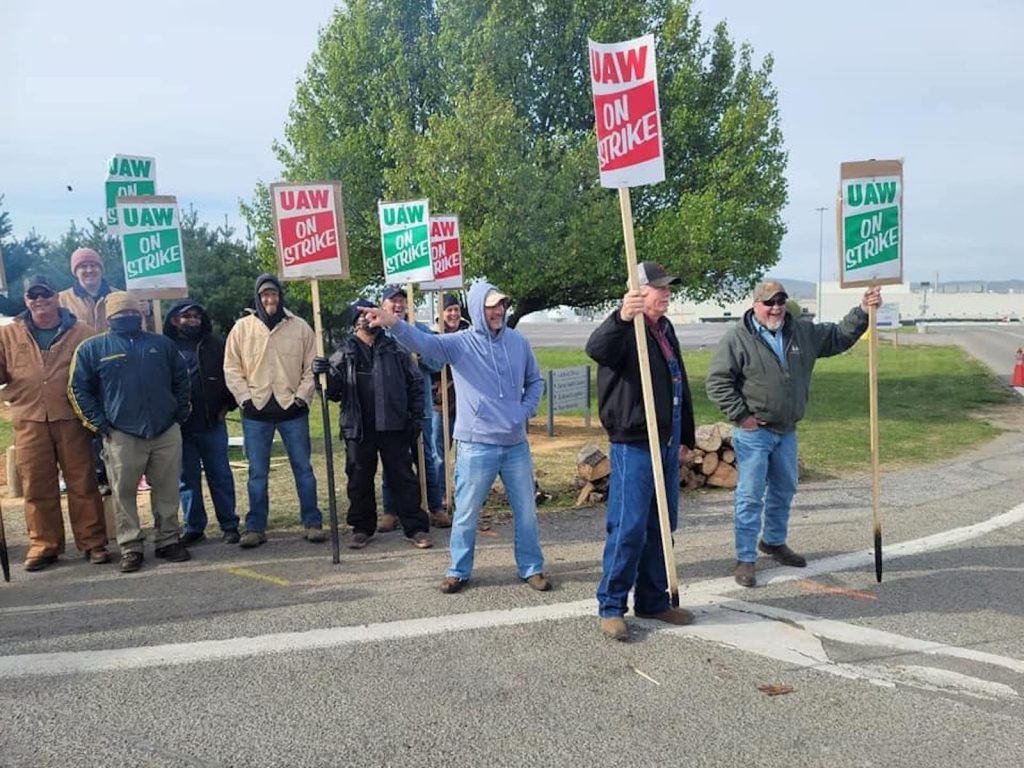Members of the United Auto Workers are being asked to vote for a fourth time on a tentative contract at a Volvo Truck plant in Virginia as the company warned it was prepared to implement its “last, best and final offer” as it moves to resume production.

“The UAW is evaluating the company’s position and evaluating our legal options. The strike is ongoing. A new vote is scheduled (July 14) for the bargaining unit members on the company’s last best and final offer,” the union said in a statement.
The contract fight escalated into a conflict that could test the pro-union tilt of the Biden administration after members of UAW Local 2069 in Dublin, Virginia voted down a tentative agreement for a third time despite having been on strike for a month.
The union’s options include filing unfair labor practice charges with the National Labor Relations Board against Volvo or remaining on strike.
Volvo issues call for workers to return
Meanwhile, Volvo, which is promising to build electric trucks at the Virginia plant, issued an ultimatum to the UAW and local union leaders and members, demanding an end to the strike.
“After reaching an impasse in discussions with United Auto Workers (UAW) negotiators regarding a new contract for the company’s New River Valley plant, Volvo Trucks North America will on July 12, 2021 implement the terms and conditions of the tentative agreement endorsed by UAW leaders on July 1, 2021,” the company said in a statement.

“Any employees who return to work on July 12 or thereafter will immediately receive the wage increases and benefits outlined in the July 1 agreement, except for the ratification bonuses that would be paid on contract ratification.”
Trying to play hardball
“We need to safeguard our future and start building trucks for the many customers and dealers whose businesses and livelihoods depend on our products,” said NRV Vice President and General Manager Franky Marchand.
“Our last offer delivered significant wage gains and first-class benefits for our employees, and 40% of UAW voters supported it. We look forward to welcoming employees back to the plant, and to getting back to building the industry’s best heavy-duty trucks.”
The Volvo Group is the only heavy-duty truck manufacturing group that assembles all of its trucks and engines for the North American market in the United States.
The NRV plant in Dublin, Virginia employs more than 3,300 people, about 2,900 of whom are UAW members. The plant is in the midst of a $400 million investment for advanced technology upgrades, site expansion and preparation for future products, including the innovative Volvo VNR Electric truck. The plant has added 1,100 jobs since the current union agreement was implemented in 2016 and is on track to have a net increase of approximately 600 positions in 2021.
It’s not clear how many employees will answer the company call for workers to return under a contract that has not been ratified. Volvo also has the option of bringing in replacement workers.

Dispute puts new pressure on UAW
In what amounts to a stinging rebuke of the union’s scandal-scarred leadership, members of United Auto Workers members voted down the latest proposal July 9 by a 60% to 40 % margin. The vote in Virginia was closer than it had been during two previous ratification ballots when roughly 90% of the Local’s voting members turned down proposed contracts.
The substantial margin of defeat of the third tentative agreement also represented an embarrassing setback for Ray Curry, the new interim president of the UAW, who had been handling the negotiations with Volvo as director of the union’s heavy truck department.
Curry said he would address the concerns of workers that led to the two previous rejections by Local 2069.
In recent years, a commitment to expand and add jobs at a unionized plant ensured cooperation in easing contract terms from the UAW, which has toned down its militancy to the regret of some members.
Grievances surrounding a two-tier wage system where new hires are paid less that workers with long seniority, and changes to a healthcare plan have been major issues in the strike at Volvo, according to Labor Notes, which has examined the dispute. Two-tier wage systems, which are despised by UAW members, became embedded in union’s contracts during the 2008-2009 recession.

Leadership in the spotlight
The authority of the UAW’s leadership has been undermined by scandal, which sent a dozen union officials, including two recent presidents, to prison on charges ranging from accepting illicit payments from employers, to bribery, mail fraud and embezzlement of union funds.
Curry, who became UAW president July 1 after the resignation of Rory Gamble, has never been implicated personally in the scandal. Nevertheless, he comes from the same relatively tight-knit cohort of UAW officials spotlighted by the federal investigation of the union.
The federal probe also has placed a monitor to oversee the union, who is expected to set a date in the next couple of weeks for a referendum on to change the union’s constitution and allow for the direct election of the union’s top officers. The referendum will be held before the end of October.
Union officers are now selected by delegates at a convention tightly controlled by union officials. The delegate-convention system is basically designed to stifle democracy within the union, critics maintain.
UAW officials deny the delegate system is undemocratic, but Gamble said, as he left office last month, he hoped Curry would carry on as UAW president for the next nine years.







